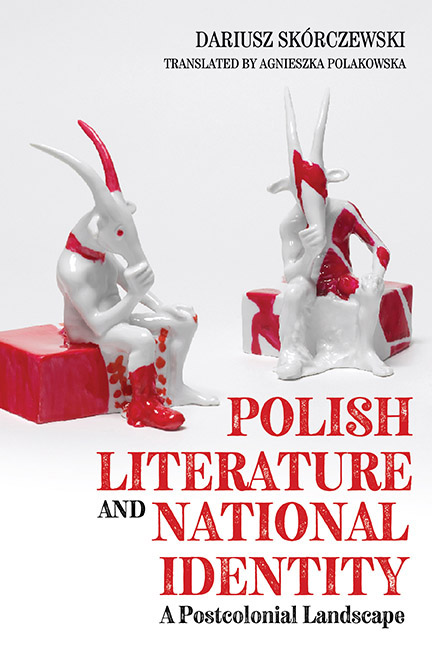Book contents
- Frontmatter
- Dedication
- Contents
- Acknowledgments
- Prologue: How It All Began
- 1 Through the Lens of Humanism, with a View to Transcendence
- 2 Postcolonialism in Poland
- 3 National Identity in a Postcolonial Framework: Necessary Clarifications and Opening Suggestions
- 4 Literature as Compensation: Comprador Intelligentsia vis-à-vis the Hegemonic Discourse—Preliminary Theoretical Remarks
- 5 Confronting the Romantic Legacy
- 6 The Natives’ Exclusion by the Empire's Poet? (Adam Mickiewicz, The Crimean Sonnets)
- 7 Identity as an Object of Inquiry (Pawel Huelle's Castorp)
- 8 The (East-)Central European Complex (Andrzej Stasiuk, On the Road to Babadag and Fado)
- 9 Colonized Poland, Orientalized Poland: Postcolonial Theory and the “Other Europe”
- 10 Slavic Issues with Identity: Marginal Notes to Maria Janion's Uncanny Slavdom
- 11 The Melancholia of Borderlands Discourse
- Afterword: Three Warnings
- Notes
- Bibliography
- Index
Prologue: How It All Began
Published online by Cambridge University Press: 25 March 2020
- Frontmatter
- Dedication
- Contents
- Acknowledgments
- Prologue: How It All Began
- 1 Through the Lens of Humanism, with a View to Transcendence
- 2 Postcolonialism in Poland
- 3 National Identity in a Postcolonial Framework: Necessary Clarifications and Opening Suggestions
- 4 Literature as Compensation: Comprador Intelligentsia vis-à-vis the Hegemonic Discourse—Preliminary Theoretical Remarks
- 5 Confronting the Romantic Legacy
- 6 The Natives’ Exclusion by the Empire's Poet? (Adam Mickiewicz, The Crimean Sonnets)
- 7 Identity as an Object of Inquiry (Pawel Huelle's Castorp)
- 8 The (East-)Central European Complex (Andrzej Stasiuk, On the Road to Babadag and Fado)
- 9 Colonized Poland, Orientalized Poland: Postcolonial Theory and the “Other Europe”
- 10 Slavic Issues with Identity: Marginal Notes to Maria Janion's Uncanny Slavdom
- 11 The Melancholia of Borderlands Discourse
- Afterword: Three Warnings
- Notes
- Bibliography
- Index
Summary
I first encountered postcolonial theory in the second half of the 1980s during my graduate studies at the Catholic University of Lublin, Poland, in a literary theory course taught by Józef Japola. The course was rightly considered crucial by Polish studies students, since it ended with perhaps the most difficult exam of our degree and the mention of postcolonial theory came during a lecture on the trends in literary theory. The term meant nothing to us at that time, because our theoretical and methodological horizons consisted, at best, of late structuralism, the Tartu-Moscow semiotic school, and Mikhail Bakhtin, including an open aversion to Marxist frameworks due to their purported responsibility for the Soviet totalitarianism. The current beneath the label was considered yet another oddity of Western culture rather than an ethically and socially valuable scientific pursuit, although we were aware to some extent that the Iron Curtain effectively separated us from not only material goods but also the free exchange of ideas and the grasp of power—knowledge relations in a “free world.” Postcolonialism also tasted of something exotic that was absent from the other theoretical directions we encountered, such as feminism and gay and lesbian studies.
What could Polish studies graduates understand, however, from a handful of its most elementary ideas received without the support of primary texts (for they were not available at that time)? We were content to know that, at the only university that was not state run in the whole of the Eastern Bloc at that time, we got to taste freedom not only when hosting dissidents and Western politicians on our campus but also when talking about what was happening in the world within literary theory. We did not know at the time that this was possible as a result of the Catholic University of Lublin Polish Studies Department's efforts to provide its students with access to the avant-garde of theoretical and literary thought, and put into practice our university's laudable commitment to truth. Among other fields and forms of activity, our program participated in the circulation of ideas in this way, making the most of its limited means, despite the constant limitations of communism's repressive apparatus. We did so while clearly delineating our own methodological position and worldview in relation to other tendencies and directions in contemporary humanist discourse.
- Type
- Chapter
- Information
- Polish Literature and National IdentityA Postcolonial Landscape, pp. 1 - 7Publisher: Boydell & BrewerPrint publication year: 2020

